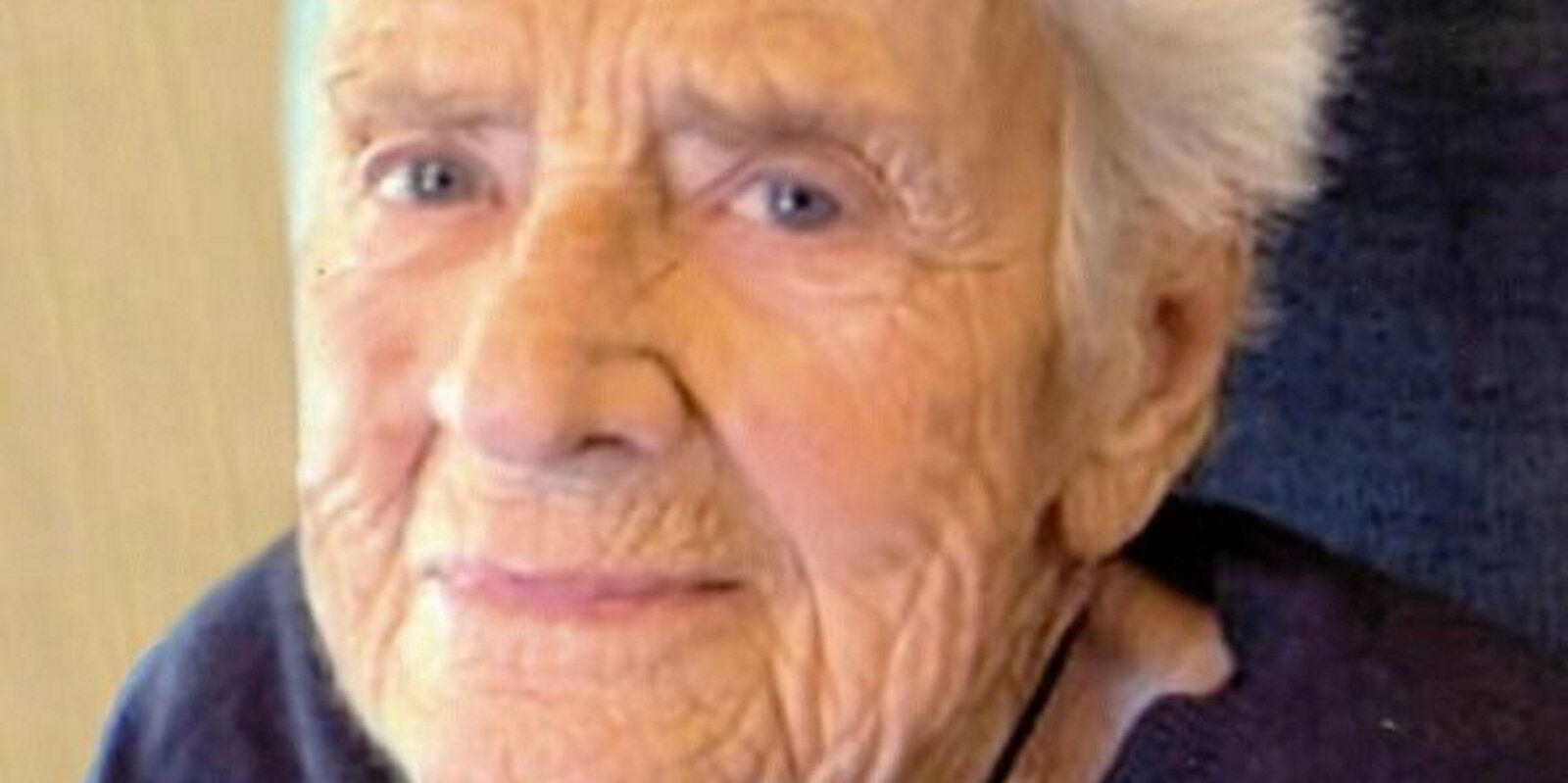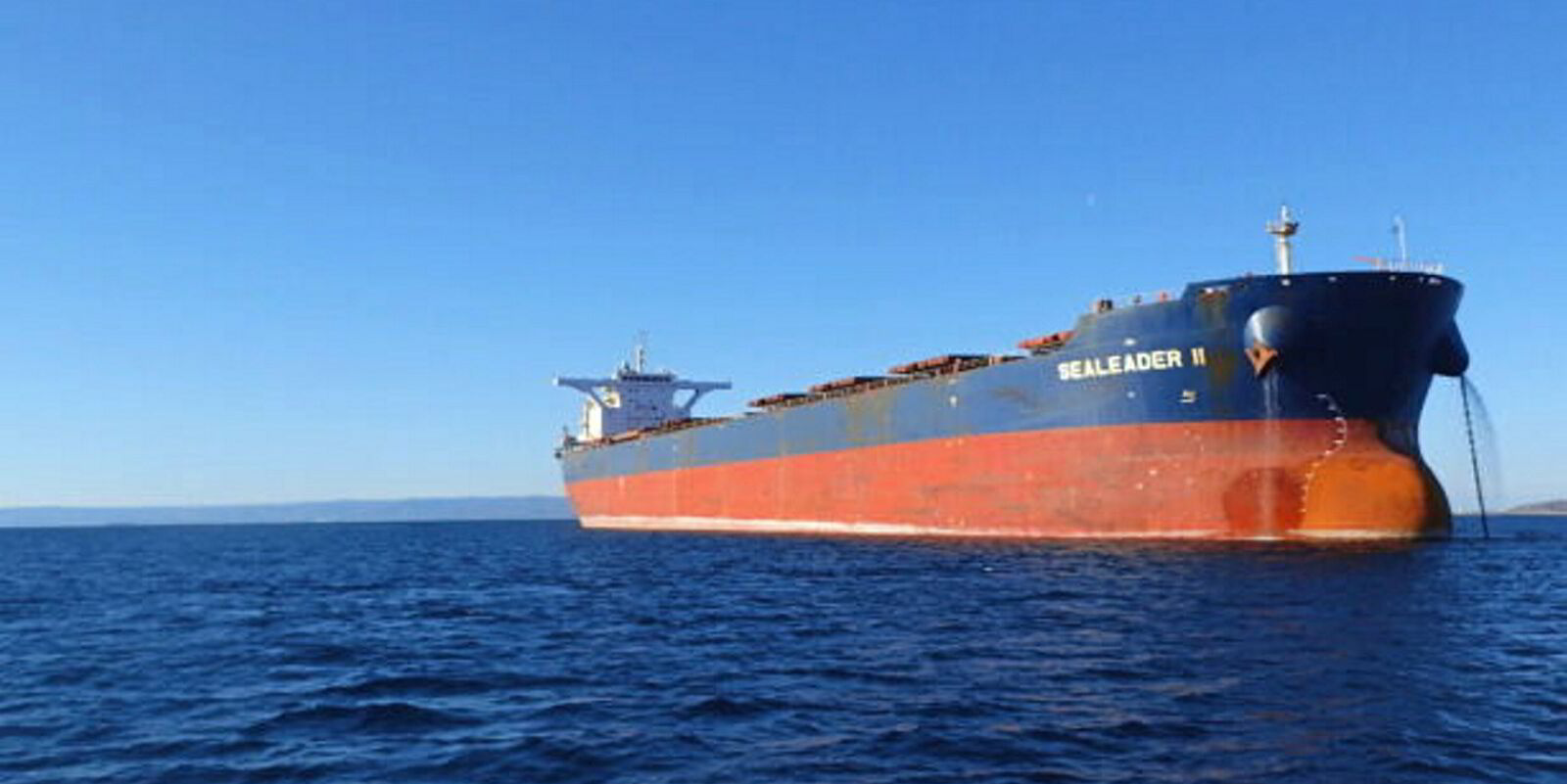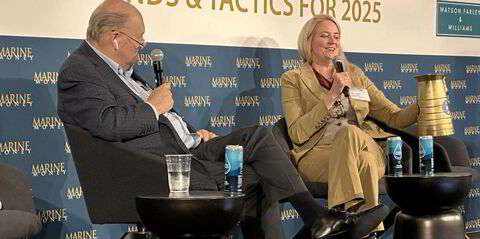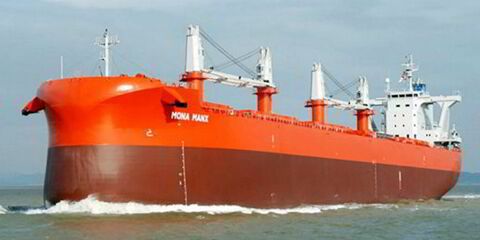Athina Martinos, the founder and original driving force behind a shipping dynasty that began from scratch 60 years ago and grew to control nearly 300 ships worth $14bn, died on 11 October.
Best known by her nickname “Nounou”, Martinos’ death at the age of 97 was announced in a laconic statement on the website of the foundation carrying her name — set up three years ago to provide grants and scholarships in social welfare, health, education, culture and the environment.
Described as a “formidable lady” by shipping executives who knew her, Martinos and her husband, Ioannis, entered shipping in 1964 by acquiring a 20-year-old vessel that the Livanos shipping empire wanted to sell.
“When Livanos sold us that ship it was garbage — I remember me and my husband going down to the engine to watch the boilers,” she recalled in an interview in her 90s.
“We fixed it though,” she went on, adding that they flipped it at a profit three years later.
Out of such humble beginnings grew Thenamaris, a company set up in 1972 that spawned Eastern Mediterranean Maritime, Minerva Marine and Astra Shipmanagement, which are respectively controlled by Athina’s children Dinos, Thanassis, Andreas, Eleni and their descendants.
Working at Thenamaris into her 90s handling legal matters, Athina Martinos served as an inspiration to her four children, 14 grandchildren and 33 great-grandchildren.
“Whenever I go to the office, I feel like a woodcock in its habitat,” the passionate hunter said in a recent documentary about her life.
Owner of a private shooting range, Athina Martinos taught many of her children and grandchildren how to handle a rifle.
Another favourite pastime was fishing.
Fellow shipowners, including late industry giants like John Angelicoussis, would line up their yachts each year on the 2nd of August to pay their respects as “grandma Nounou” celebrated her birthday at her preferred fishing spot off Schoinousa island.
She was reluctant to fly though.
“Before I get into a plane, I have to drink half a bottle of whiskey,” she told the Aeinaftes documentary.
She never hesitated to get airborne, however, whenever business required it.
When the family bought their second ship, Athina Martinos personally rushed to get the registration papers to her eldest son, Thanassis — who was then just a teenager — just in time before a midnight cancellation deadline.
That episode gives an idea of the key role she played at the company’s beginnings.
Her husband, Ioannis, provided financial and moral support but largely preferred looking after his highly successful antique store, which exists in Athens to this day and is run by their daughter Eleni.
“What my mother did was a feat,” Eleni reminisced about her mother’s early shipping days.
“She got into this business without having a clue — my father gave her a small capital, she sold her dowry and slowly got into shipping,” Eleni added.
Overcoming barriers
For a woman to do that was particularly unusual.
Men and women were sitting apart when she attended London Greek social gatherings. She used to shuttle between the two groups to overhear men’s chartering conversations.
Shipping was in her family’s genes, of course. Her father, Constantinos Methenitis, was a prominent lawyer with maritime routes from the island of Cephalonia.
Before Thenamaris was set up, it was the Methenitis family that managed the Martinos’ first vessels. Athina’s brother, Kleovoulos, was a sea captain. Another sibling, Meletis, became a shipping lawyer.
Widowed at 49, Athina Martinos was not reluctant to pass the reins to her three sons when they turned 20.
“I never liked managing around and I never liked calling myself a director, because essentially I wasn’t,” she said in the documentary.
Her three sons always appreciated the freedom her mother gave them to run their own affairs, both in business and in private.
“Contrary to what usually happens with parents, she had no ownership in the ships … she handed us the leading role, right from the start,” Thanassis said.
Asked in the documentary to describe her own role at Thenamaris, Athina Martinos had the following to say: “I wouldn’t call myself the driving force. I was rather the person that showed things are simple and achievable in life if you love them, and that you can do things when you really want them.”




